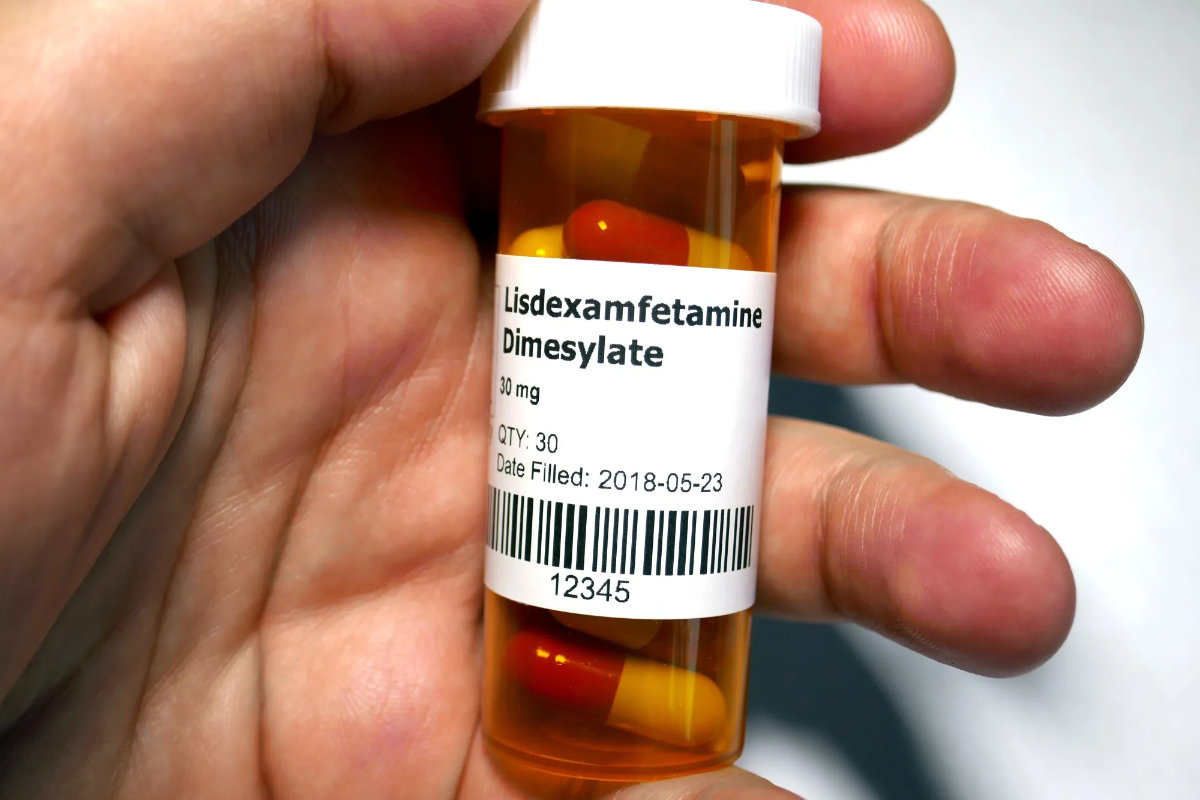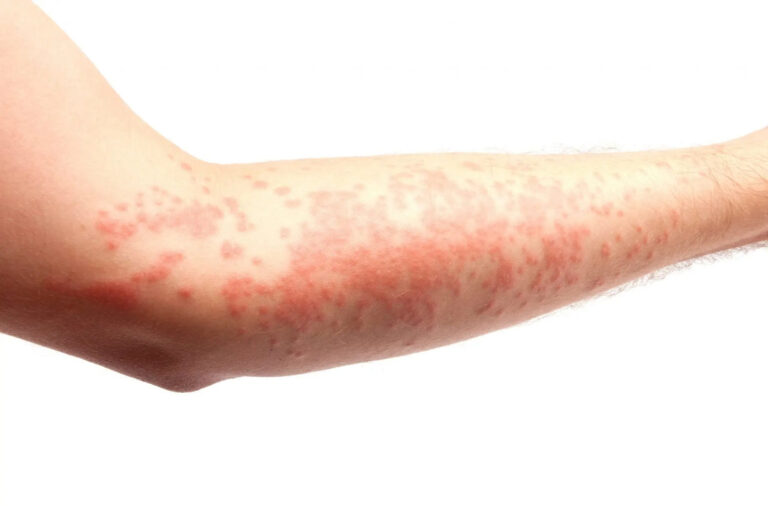Modafinil + Vyvanse (Elvanse) for ADHD: Safe or Risky?
People sometimes consider taking modafinil with Vyvanse or Elvanse to fight daytime sleepiness and improve attention. These medicines work in different ways. One is a wakefulness promoter, the other is a central nervous system stimulant for attention-deficit hyperactivity disorder (ADHD). The question is whether using them together helps or harms.
What each medicine is approved to do
Modafinil
Modafinil is a wakefulness-promoting agent. It is approved in adults for narcolepsy, obstructive sleep apnea, and shift work disorder. For sleep apnea, it helps residual sleepiness and does not treat the airway obstruction. Labels advise optimizing continuous positive airway pressure use first. Common side effects are headache, nausea, anxiety, and insomnia. Rare but serious rashes can occur. Modafinil is a Schedule IV controlled substance in the United States (U.S. Food and Drug Administration, 2015; Greenblatt & Adams, 2023).
Lisdexamfetamine (Vyvanse or Elvanse)
Lisdexamfetamine is a prodrug that converts to dextroamphetamine in red blood cells. It is approved for ADHD and, in some regions, for moderate to severe binge eating disorder in adults. It has a long, smooth effect across the day. As a stimulant, it can reduce appetite, disturb sleep, and increase heart rate and blood pressure. It is a controlled substance with abuse potential and is classified as Schedule II in several jurisdictions (Madaan, Kolli, Bestha, & Shah, 2013; Heal et al., 2013).
Does modafinil help ADHD?
High-quality evidence does not support modafinil for adult ADHD. A meta-analysis of randomized, double-blind trials found no significant benefit of modafinil compared with placebo in adults. In the same analysis, lisdexamfetamine showed a large effect size and was the most effective option among the agents studied (Stuhec et al., 2019).
Why some consider combining them
People think about adding modafinil when ADHD is accompanied by significant daytime sleepiness or shift work. Others consider it when attention medicines help but fatigue remains. These are understandable reasons. The problem is the lack of ADHD-specific trials on the combination and the potential for amplified side effects. Preclinical work shows lisdexamfetamine produces larger and longer catecholamine changes than modafinil, which helps explain why lisdexamfetamine works well for ADHD while modafinil does not. These are animal data and should be taken as mechanistic context, not clinical proof (Rowley et al., 2014; Heal et al., 2013).
Safety concerns with taking both
Cardiovascular effects
Both medicines can increase blood pressure and heart rate. Using them together can push these vital signs higher. People with heart disease, arrhythmias, uncontrolled hypertension, or structural heart problems need careful evaluation before any stimulant use (U.S. Food and Drug Administration, 2015).
Psychiatric and sleep effects
Anxiety, agitation, irritability, and insomnia can worsen when stimulatory drugs are combined. Late dosing raises the risk of sleep disruption (U.S. Food and Drug Administration, 2015; Greenblatt & Adams, 2023).
Skin and allergic reactions
Modafinil has rare reports of serious rashes, including Stevens-Johnson syndrome. Any new rash needs immediate medical attention and drug discontinuation unless clearly unrelated (U.S. Food and Drug Administration, 2015).
Abuse and dependence
Lisdexamfetamine and other stimulants carry abuse risk. Preclinical models show lisdexamfetamine generalizes to d-amphetamine while modafinil has weaker reinforcing properties, but clinical misuse is still possible. Controlled status reflects these risks (Heal et al., 2013; U.S. Food and Drug Administration, 2015).
Drug interactions and contraception
Modafinil can lower the effectiveness of steroidal hormonal contraceptives. Use a non-hormonal backup method during treatment and for one month after stopping modafinil (U.S. Food and Drug Administration, 2015).
A safer stepwise plan before considering a combination
- Treat the cause of sleepiness
If sleep apnea is present, ensure continuous positive airway pressure use is optimized. Modafinil should not replace airway treatment. Screen for insufficient sleep, circadian issues, and other sleep disorders first (U.S. Food and Drug Administration, 2015). - Optimize ADHD monotherapy
Work with a clinician to adjust lisdexamfetamine dose, timing, and formulation. Consider switching stimulant classes or adding non-stimulants when partial response persists. Lisdexamfetamine has strong adult ADHD evidence, while modafinil does not (Stuhec et al., 2019; Madaan et al., 2013). - If a specialist considers adding modafinil
Ask for a clear plan. That plan should include baseline and follow-up blood pressure and heart rate, monitoring for anxiety and insomnia, dose timing to reduce sleep issues, and contraceptive counseling when relevant (U.S. Food and Drug Administration, 2015; Greenblatt & Adams, 2023).
What to discuss with your clinician
- Your goals, such as better wakefulness at work or sustained focus
- Your medical history, especially heart conditions or anxiety
- Your sleep schedule, snoring, witnessed apneas, and CPAP use
- All current medicines, including birth control
- Willingness to track blood pressure, pulse, sleep, and side effects
Bottom line
For adult ADHD, lisdexamfetamine has strong evidence of benefit. Modafinil does not. There are no ADHD trials of modafinil plus lisdexamfetamine. Combining them may raise cardiovascular and psychiatric risks and needs careful specialist supervision. Address sleep disorders first, then optimize ADHD treatment. This approach aligns best with the available evidence and labeling information (U.S. Food and Drug Administration, 2015; Stuhec et al., 2019; Greenblatt & Adams, 2023; Madaan et al., 2013).
FAQ
Can I take modafinil and Vyvanse on the same day?
This should only be done under medical supervision. There are no ADHD trials on the combination. The pair can increase heart rate, blood pressure, anxiety, and insomnia (U.S. Food and Drug Administration, 2015; Stuhec et al., 2019).
Does modafinil make birth control less effective?
Yes. Modafinil can reduce the effectiveness of hormonal contraceptives. Use a non-hormonal backup during treatment and for one month after stopping (U.S. Food and Drug Administration, 2015).
If I feel sleepy on Vyvanse, should I add modafinil?
First address the cause of sleepiness, such as sleep apnea, insufficient sleep, or poor sleep timing. Then optimize ADHD therapy. Adding modafinil comes later, only if a specialist advises it (U.S. Food and Drug Administration, 2015; Madaan et al., 2013).
Is modafinil effective for adult ADHD?
Current randomized evidence does not show benefit for adults with ADHD. Lisdexamfetamine has strong evidence of effectiveness (Stuhec et al., 2019).
References
- U.S. Food and Drug Administration. (2015). PROVIGIL® (modafinil) tablets, for oral use, C-IV [Prescribing information]. U.S. Department of Health and Human Services. https://www.accessdata.fda.gov/drugsatfda_docs/label/2015/020717s037s038lbl.pdf
- Greenblatt, K., & Adams, N. (2023, February 6). Modafinil. In StatPearls [Internet]. StatPearls Publishing. https://www.ncbi.nlm.nih.gov/books/NBK531476/
- Stuhec, M., Lukić, P., & Locatelli, I. (2019). Efficacy, acceptability, and tolerability of lisdexamfetamine, mixed amphetamine salts, methylphenidate, and modafinil in the treatment of attention-deficit hyperactivity disorder in adults: A systematic review and meta-analysis. Annals of Pharmacotherapy, 53(2), 121–133. https://doi.org/10.1177/1060028018795703
- Rowley, H. L., Kulkarni, R. S., Gosden, J., Brammer, R. J., Hackett, D., & Heal, D. J. (2014). Differences in the neurochemical and behavioural profiles of lisdexamfetamine, methylphenidate, and modafinil revealed by simultaneous dual-probe microdialysis and locomotor activity measurements in freely moving rats. Journal of Psychopharmacology, 28(3), 254–269. https://doi.org/10.1177/0269881113513850
- Heal, D. J., Buckley, N. W., Gosden, J., Slater, N., France, C. P., & Hackett, D. (2013). A preclinical evaluation of the discriminative and reinforcing properties of lisdexamfetamine in comparison to D-amfetamine, methylphenidate, and modafinil. Neuropharmacology, 73, 348–358. https://doi.org/10.1016/j.neuropharm.2013.05.021
- Madaan, V., Kolli, V., Bestha, D. P., & Shah, M. J. (2013). Update on optimal use of lisdexamfetamine in the treatment of ADHD. Neuropsychiatric Disease and Treatment, 9, 977–983. https://doi.org/10.2147/NDT.S34092








